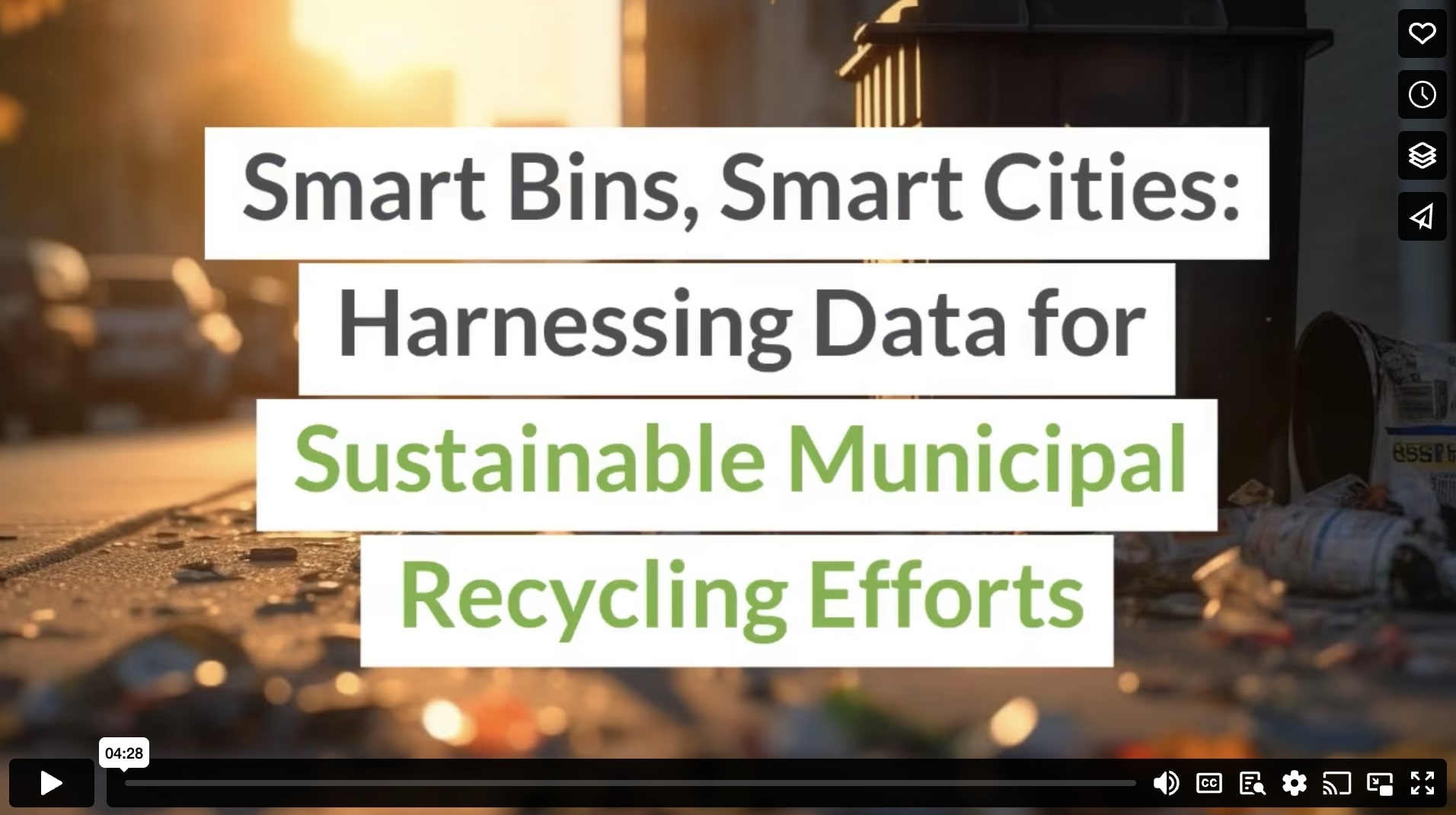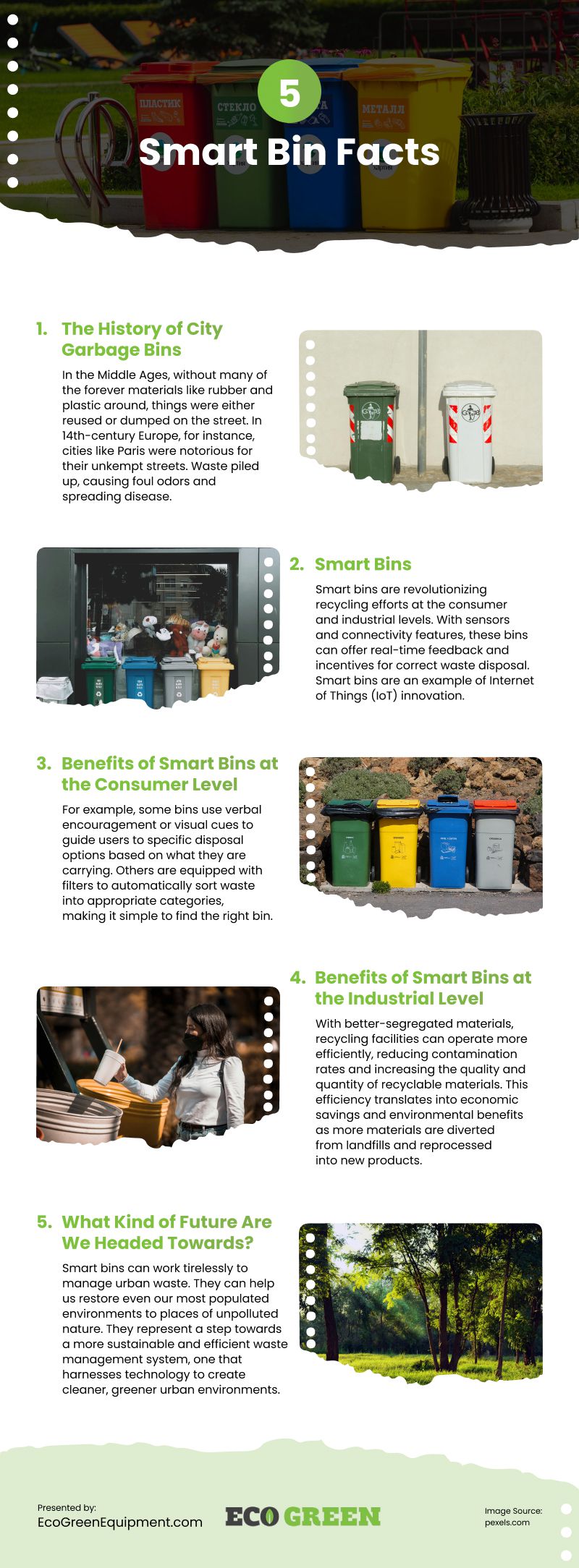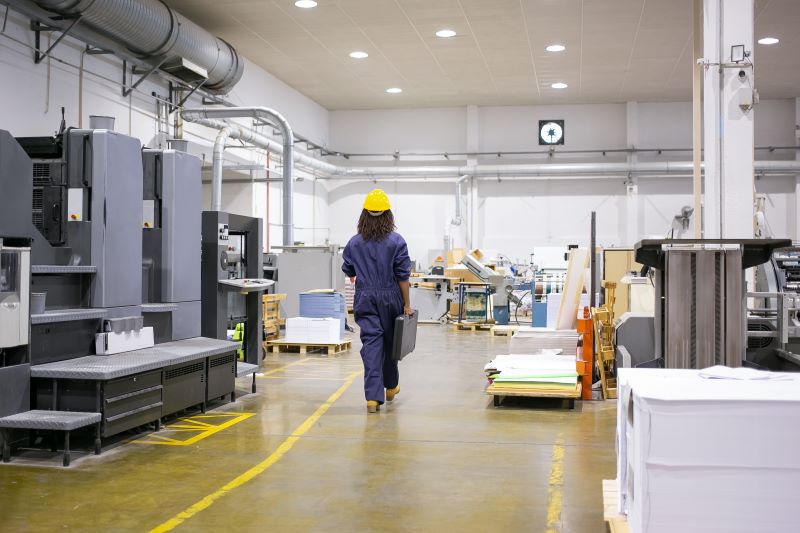Our cities are becoming smarter every day. The usual mundane aspects of city life are now becoming novel attractions, from self-driving taxis in San Francisco to public restrooms in Tokyo that open, flush, and clean themselves without you touching a thing. These advancements around the world are making futuristic visions of society a reality. It’s exciting to be a part of such rapid transformations. However, there are so many showy applications that it is easy to overlook how they might affect industries hidden from the public eye. One of these out-of-the-limelight industries is waste management and recycling in urban centers.
Can smart technology transform the way we dispose of garbage? Will this lead to the dystopia of WALL-E or a greener, more environmentally friendly Earth? To fully explore where we might be headed, let’s begin by looking at the history of city garbage disposal. With this context, smart garbage bins and how they might change our cities can truly be understood and appreciated.
The History of City Garbage Bins:
Public garbage disposal is a relatively new concept. In the Middle Ages, without many of the forever materials like rubber and plastic around, things were either reused or dumped on the street. In 14th-century Europe, for instance, cities like Paris were notorious for their unkempt streets. Waste piled up, causing foul odors and spreading disease. The Great Stink of London in 1858, when the River Thames was flooded with untreated sewage, is a grim reminder of the consequences of inadequate waste management. It is also an excellent example of just how far we have come.
Modern waste management includes structured systems for garbage collection, landfill use, and recycling plants for a vast range of materials, including hard plastics, glass, aluminum, steel, tires and paper. Household recycling was the new kid on the block 30 years ago. What’s new in urban waste disposal and recycling now?
Smart Bins
Smart bins are revolutionizing recycling efforts at the consumer and industrial levels. With sensors and connectivity features, these bins can offer real-time feedback and incentives for correct waste disposal. Smart bins are an example of Internet of Things (IoT) innovation. IoT includes items like smartwatches, smart homes, and smart beds. This technology turns general, one-size-fits-all objects into personalized and efficient tools.
Benefits of Smart Bins at the Consumer Level:
For example, some bins use verbal encouragement or visual cues to guide users to specific disposal options based on what they are carrying. Others are equipped with filters to automatically sort waste into appropriate categories, making it simple to find the right bin.
Benefits of Smart Bins at the Industrial Level:
Efficient Sorting: Beyond the individual level, smart bins significantly benefit the recycling industry by improving the sorting of waste. With better-segregated materials, recycling facilities can operate more efficiently, reducing contamination rates and increasing the quality and quantity of recyclable materials. This efficiency translates into economic savings and environmental benefits as more materials are diverted from landfills and reprocessed into new products.
Big Data: The data generated by smart bins offers a treasure trove of insights for city planners and waste management companies. Municipalities can identify areas with high waste production by analyzing usage patterns and allocating resources more effectively. For instance, data can reveal which neighborhoods require more bins or more frequent collections. Additionally, tracking the types and volumes of waste produced by different industries can help better tailor recycling programs and policies to address specific waste streams.
What Kind of Future Are We Headed Towards?
Smart bins can work tirelessly to manage urban waste. They can help us restore even our most populated environments to places of unpolluted nature. They represent a step towards a more sustainable and efficient waste management system, one that harnesses technology to create cleaner, greener urban environments.
Overall, smart bins point towards a trend in the industrial recycling equipment industry. Recycling machinery manufacturers are increasingly incorporating smart technologies into previously simple primary shredders and recycling conveyors. Smart bins are the first link in the chain of what is rapidly becoming an efficient and intelligent process of waste management.
Conclusion
While the flashy aspects of smart cities often steal the spotlight, innovations like smart bins demonstrate the profound impact that smart technology can have on essential yet overlooked industries. By enhancing waste management and recycling efforts through improved consumer interaction and valuable data insights, smart bins contribute significantly to the sustainable growth of our cities.
Video

Infographic
Can smart technology change how we dispose of garbage? Let’s start by looking at the history of city garbage disposal to understand how smart garbage bins might change our cities. Read on in this infographic to learn more.





